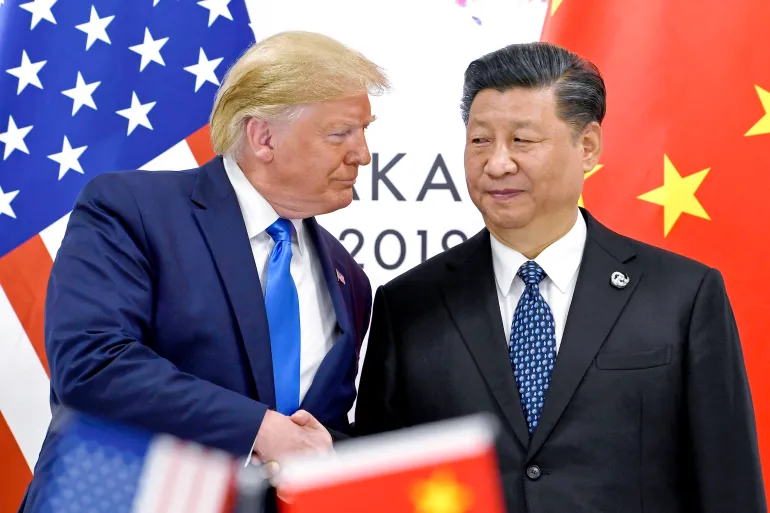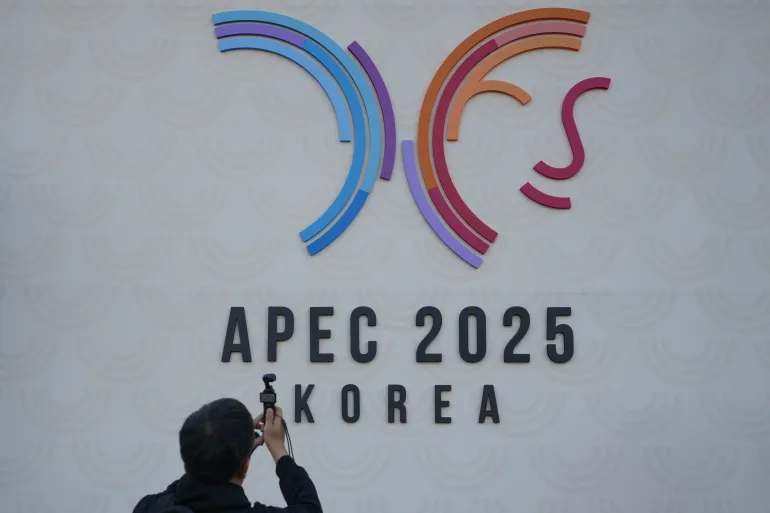As Trump and Xi near deal, few see letup in heated US-China rivalry | International Trade News
Gyeongju, South Korea – As US President Donald Trump and Chinese leader Xi Jinping prepare to meet for the first time since 2019, Washington and Beijing appear poised to reach a deal to lower the temperature of their fierce rivalry.
But while Trump and Xi are widely expected to de-escalate US-China tensions in South Korea on Thursday, expectations are modest for how far any agreement will go to resolve the myriad points of contention between the world’s two largest economies.
Recommended Stories
list of 4 itemsend of list
Many details of the expected deal that have been flagged in advance relate to avoiding future escalation, rather than rolling back the trade war that Trump launched during his first term and has dramatically expanded since returning to office this year.
Some of the proposed measures involve issues that have only arisen within the last few weeks, including China’s plan to impose strict export controls on rare earths from December 1.
Whatever Trump and Xi agree to on the sidelines of the Asia-Pacific Economic Cooperation (APEC) summit in Gyeongju, there is little doubt that Washington and Beijing will continue to butt heads as they jockey for influence in a rapidly shifting international order, according to analysts.
“I have modest expectations for this meeting,” said Deborah Elms, head of trade policy at the Hinrich Foundation in Singapore.
“I think, no matter what happens this week, we haven’t seen the end of economic tensions, tariff threats, export controls and restrictions, and the use of unusual levers like digital rules,” Elms told Al Jazeera.

Contours of a deal
While the exact parameters of any deal are still to be determined by Trump and Xi, the contours of an agreement have emerged in recent days.
US Secretary of the Treasury Scott Bessent said in media interviews this week that he expected China to defer its restrictions on rare earths and that Trump’s threatened 100 percent tariff on Chinese goods was “effectively off the table”.
Bessent said he also anticipated that the Chinese side would agree to increase purchases of US-grown soya beans, enhance cooperation with the US to halt the flow of chemicals used to manufacture fentanyl, and sign off on a finalised TikTok deal.
While heading off a further spiralling in US-China ties, a deal along these lines would leave intact a wide array of tariffs, sanctions and export controls that hinder trade and business between the sides.
Since Washington and Beijing reached a partial truce in their tit-for-tat tariff salvoes in May, the average US duty on Chinese goods has stood at more than 55 percent, while China’s average levy on US products has hovered at about 32 percent.
Washington has blacklisted hundreds of Chinese firms deemed to pose national security risks, and prohibited the export of advanced chips and key manufacturing equipment related to AI.
China has, in turn, added dozens of US companies to its “unreliable entity” list, launched antitrust investigations into Nvidia and Qualcomm, and restricted exports of more than a dozen rare earths and metallic elements, including gallium and dysprosium.
US-China trade has declined sharply since Trump re-entered the White House.
China’s exports to the US fell 27 percent in September, the sixth straight month of decline, even as outbound shipments rose overall amid expanding trade with Southeast Asia, Latin America, Europe and Africa.
China’s imports of US goods declined 16 percent, continuing a downward trend since April.
“The structural contradictions between China and the United States have not been resolved,” said Wang Wen, dean of the Chongyang Institute for Financial Studies at Renmin University of China in Beijing, predicting continuing friction and “even worse” relations between the superpowers in the future.
“Most importantly, China’s strength is increasing and will surpass that of the United States in the future,” Wang told Al Jazeera.
‘De-escalation unlikely’
Shan Guo, a partner with Shanghai-based Hutong Research, said he expects the “bulk” of the deal between Trump and Xi to be about avoiding escalation. “A fundamental de-escalation is unlikely given the political environment in the US,” Guo told Al Jazeera.

But with the US having no alternative to Chinese rare earths and minerals in the near-term, Washington and Beijing could put aside their differences for longer than past trade truces, Guo said.
“This means reduced downside risks in US-China relations for at least a year, or perhaps even longer,” he said.
Dennis Wilder, a professor at Georgetown University who worked on China at the CIA and the White House’s National Security Council, said that while he is optimistic the summit will produce “positive tactical results”, it will not mark the end of the trade war.
“A comprehensive trade deal is still not available,” Wilder told Al Jazeera.
“Bessent and his Chinese counterpart will continue negotiating in hopes of a more lasting agreement if and when President Trump visits China next year.”
Trump and Xi’s go-to language on the US-China relationship itself points to the gulf between the sides.
While Trump often complains about the US being “ripped off” by China, Xi has repeatedly called for their relations to be defined by “mutual respect” and “win-win cooperation”.
“The United States should treat China in a way that China considers respectful,” said Wang of Renmin University.
“They have to respect China, and if they don’t, then the United States will receive an equal response until they become able to respect others,” he added.